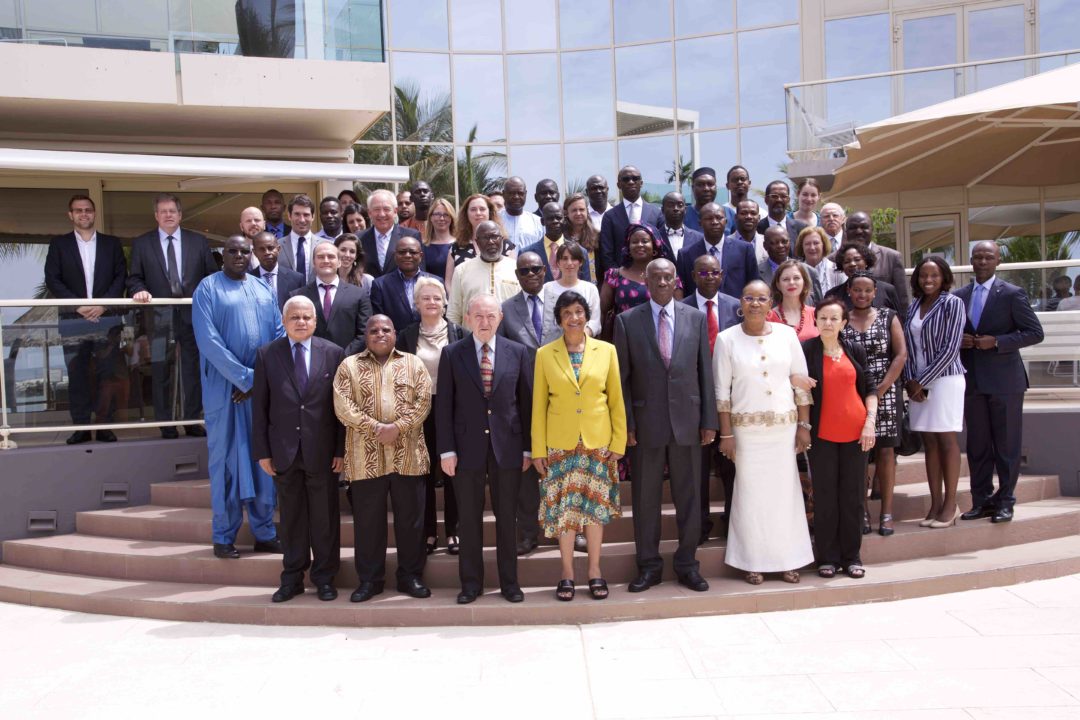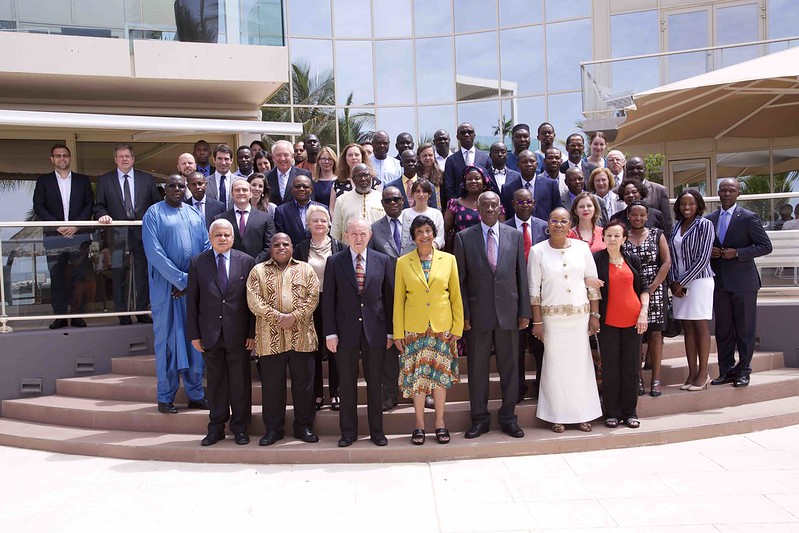From 7-8 July 2017, Senegal’s capital of Dakar was the scene of a public symposium entitled, “Changing the Narrative – From Withdrawal to Constructive Engagement”.
Click here for the Symposium report
Convened by the Wayamo Foundation and the Africa Group for Justice and Accountability (AGJA), the symposium brought together a number of leading stakeholders, experts, scholars, and practitioners in order to discuss a range of topics, including the current status of the relationship between African states and the International Criminal Court (ICC), possible reforms to improve the Court and interpreting the African Union’s (AU) ICC Withdrawal Strategy as a package of reforms, the role of hybrid mechanisms in prosecuting international crimes, combating impunity at a regional level, the coming into force of the crime of aggression, and the thorny issue of sequencing peace and justice.
Attending and participating in the learned and often lively discussions were representatives, past and present, from the ICC, United Nations agencies, Kosovo Specialist Chambers, Extraordinary African Chambers in Senegal, the Mechanism for International Criminal Tribunals (MICT), International Criminal Tribunal for Rwanda, Central African Republic’s Special Criminal Court, NGOs such as Amnesty International and the Institute for Security Studies, and the academic world.
The sheer wealth of experience and knowledge in the room was further underlined by the number of dignitaries who chose to take an active part in the proceedings. These included former Prime Minister of Senegal, Aminata Touré, former Transitional President of the Central African Republic, Catherine Samba-Panza, Chief Justice of The Gambia, Hassan Bubacar Jallow, Former Chief Justice of Tanzania, Mohamed Othman Chande, Permanent Representative of Liechtenstein to the United Nations, Ambassador Christian Wenaweser, former UN High Commissioner for Human Rights Navi Pillay, former Chief Prosecutor of the United Nations International Criminal Tribunal for Rwanda and the former Yugoslavia, Richard Goldstone, and former United States Ambassador-at-Large for War Crimes Issues, Stephen Rapp. Ambassador Wenaweser acceded to taking part in a one-to-one conversation on the activation of ICC jurisdiction over the crime of aggression.
The two-day event was brought to a close by a panel of AGJA members. In addition to recognising the importance of Francophone countries, the Africa Group’s Chairman, Hassan Bubacar Jallow, reported that, among other things, the Group intended to monitor the situation in Burundi and engage with South Sudan. The AGJA was committed to continuing its capacity building efforts for East African investigators, prosecutors and judges, as well as Nigerian civil and military prosecutors. For her part, Catherine Samba-Panza was pleased at the fact that the AGJA had put the Special Criminal Court of the Central African Republic on its agenda.
There was also recognition of the need to continue constructive engagement between international courts and African states. The opinion was voiced – and supported by a representative of the African Union, that the AU’s ICC Withdrawal Strategy also provides proposals for reforming the Court and an opportunity for continued engagement.
Yet it was the victims of international crimes and human rights abuses who were the focus on many of the participants’ comments. Richard Goldstone was “delighted at the attention that had been paid to victims” over the course of the discussions. This message was driven home by Justice Mohamed Chande Othman, who stressed the need to look at the “gaps” when addressing the subject of victims, and Navi Pillay who, referring specifically to violence against women and girls, wanted to see “justice delivered holistically to all victims. Perhaps the most moving testimony, however, came from AGJA member Tiyanjana Maluwa, who quoted a woman refugee in Dafur as saying:
“We want peace. If it is flying in the air, I am prepared to fly and catch it. If it is buried underground, I am prepared to dig to get it. If it is available in the market, I will find the money to buy it.”



